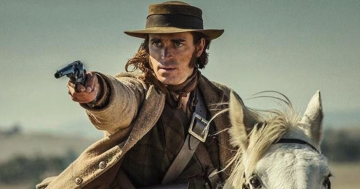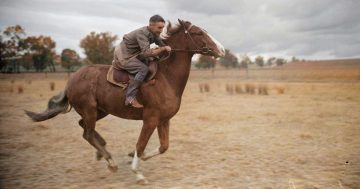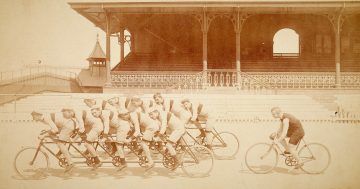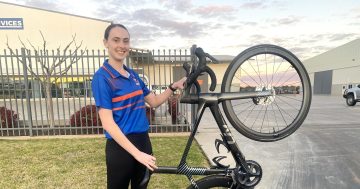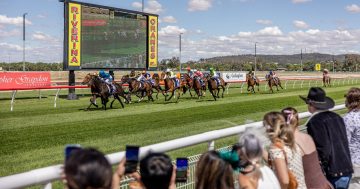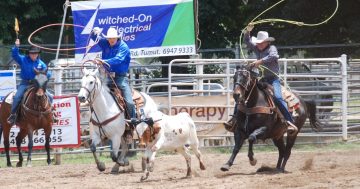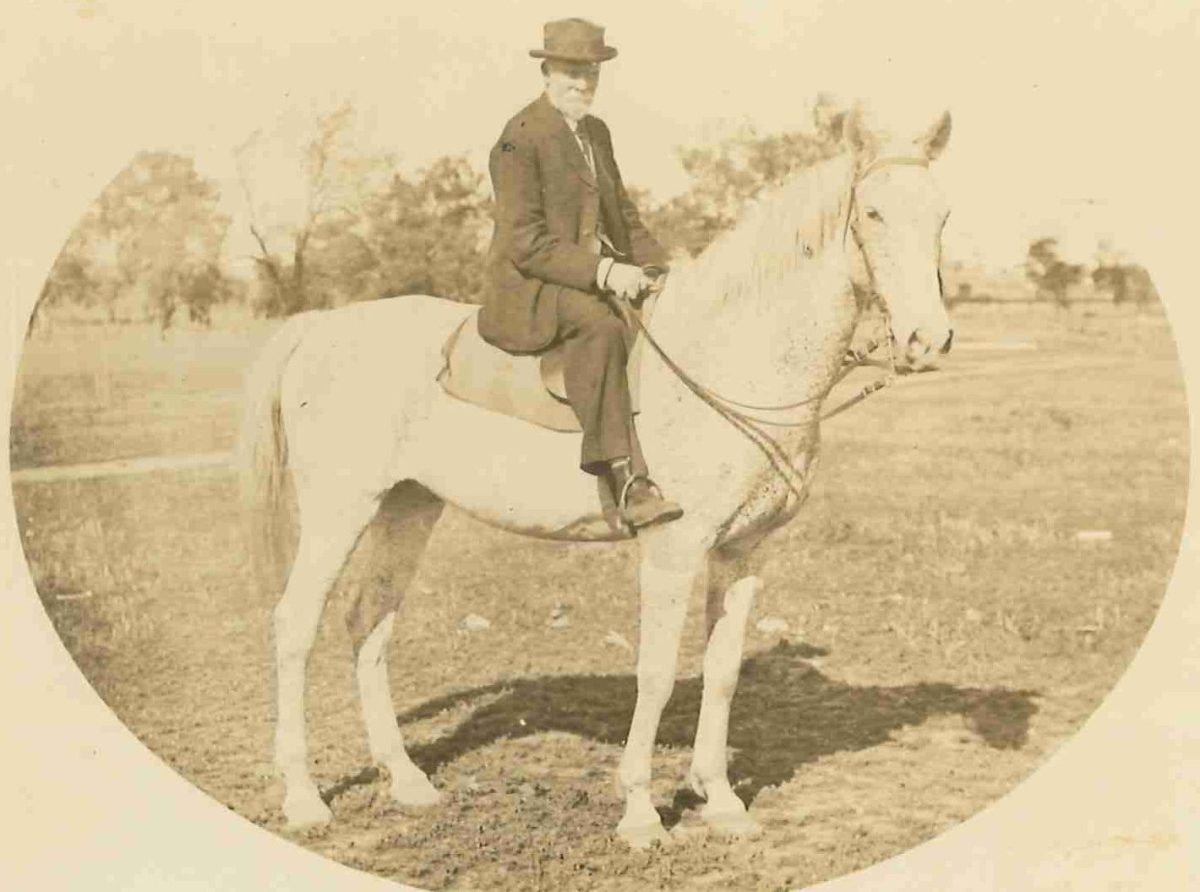
James Gormly on horseback later in life, from the Gormly family collection. Photo: Charles Sturt University Regional Archives.
In light of Wagga’s Gold Cup Carnival, we thought we’d look back on the Riverina’s illustrious racing history and one epic race in particular.
The first race meeting in Wagga was on St Patrick’s Day (17 March) in 1849 when J J Roberts, the Wagga Wagga Inn licensee, put up a silver cup valued at 50 guineas.
The Murrumbidgee Turf Club was soon established and the first Wagga Gold Cup was run in 1873.
But five years earlier, an argument over a few beers led to Australia’s only recorded 10-mile race.
It was in November 1868 that a handful of local riders got into a stoush over whether the current breed of racehorse had more speed and stamina than the “old-timers”.
A challenge was issued and £300 prize money was raised for the first past the post.
The race caused a stir in the national press, with many horse lovers predicting that the animals would be ridden to death and one Melbourne journalist declaring that the man who proposed the race should “be sent to gaol for six months”.
Noted local horseman James Gormly was one of the dozen who rode in the historic race and described the event in his memoir Exploration and Settlement in Australia.
He disagreed with those who claimed that a “well-bred stock-horse” would do better than the thoroughbred racehorses over the distance.
“Experience has shown me that a good racehorse when in proper condition and judiciously ridden, could outlast any other class of horse,” he wrote.
“I realised that much depended on the temper and tractability of a horse in such a trying contest.
“Another feature that was bound to tell in the race was, did the rider understand at what pace his mount could last for the 10 miles?”
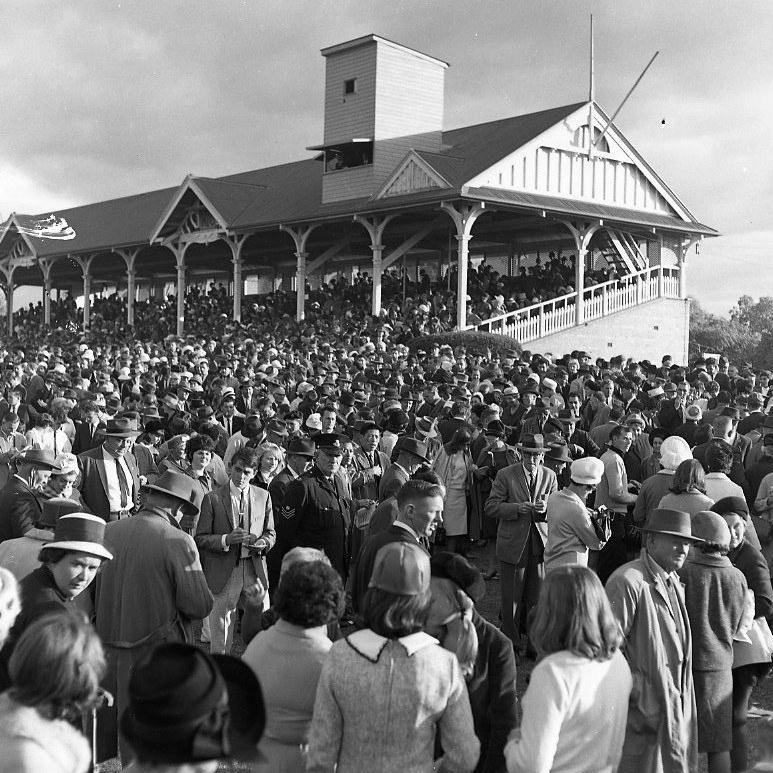
The Wagga Wagga Gold Cup is an Australian institution. Photo: MTC.
Twenty horses of all sorts and sizes were entered, 12 started and Gormly judged that only five could actually be considered contenders.
Riverina had secured third place in the Melbourne Cup in 1865 and Gormly declared that she was “never in better condition than the day she started in the 10-Mile-Race”.
He also liked the chances of Australian, Jerry Sneak and Comet, while Gormly himself chose to ride the feisty racehorse Camel.
Camel had proved a difficult horse to tame and Gormly recalled that during a gallop around the track, the colt had bolted off, heading up Fitzmaurice Street where it swerved through the gate to the courthouse and galloped in through an open door.
“With much difficulty, I got the ‘horse out of the building without damaging the furniture in the Court Room,” he said.
When the flag went down, Gormly found it tough to hold Camel back from the eager pack.
Camel and Glaucus steadily extended their lead over the first three miles and were soon 800 yards ahead of the field.
Frustrated by his inability to maintain a steady pace, Gormly pulled off the track and walked his horse until the rest had caught up and he rejoined the race.
It proved a good move as Glaucus soon “pumped out” and was unable to finish the race.
“Notwithstanding his mad rush at the start, Camel was able to keep with the leading division, which consisted of Australian, Riverina and Pelham,” Gormly wrote.
As they headed into the final lap, Gormly brought Camel into the lead but was quickly reeled in by Riverina, who surged ahead with Australian and Comet.
It was neck and neck between the three over the last mile, as The Wagga Wagga Express records.
“Coming round the last turn for home, Australian, ridden splendidly by Yeomans, made a rush for the front, the rider of Comet also called upon his steed, and right gallantly he answered as he came swinging round the corner, but the rider, more than the horse, was “baked”, and failed at the critical moment, as Australian collared and pushed past him, while the game little Riverina sprang forward upon his quarter.
“A beautiful race ensued, but Australian could not be outpaced, and was landed a winner by a length, Comet beating Riverina for second place by a neck.”
Now some distance behind, Gormly and Camel finished just ahead of Jerry Sneak to claim fourth place.
While Gormly declared that the first five horses quickly recovered from the epic race, Australian was so “cowed” by the experience that he would never win another race.







